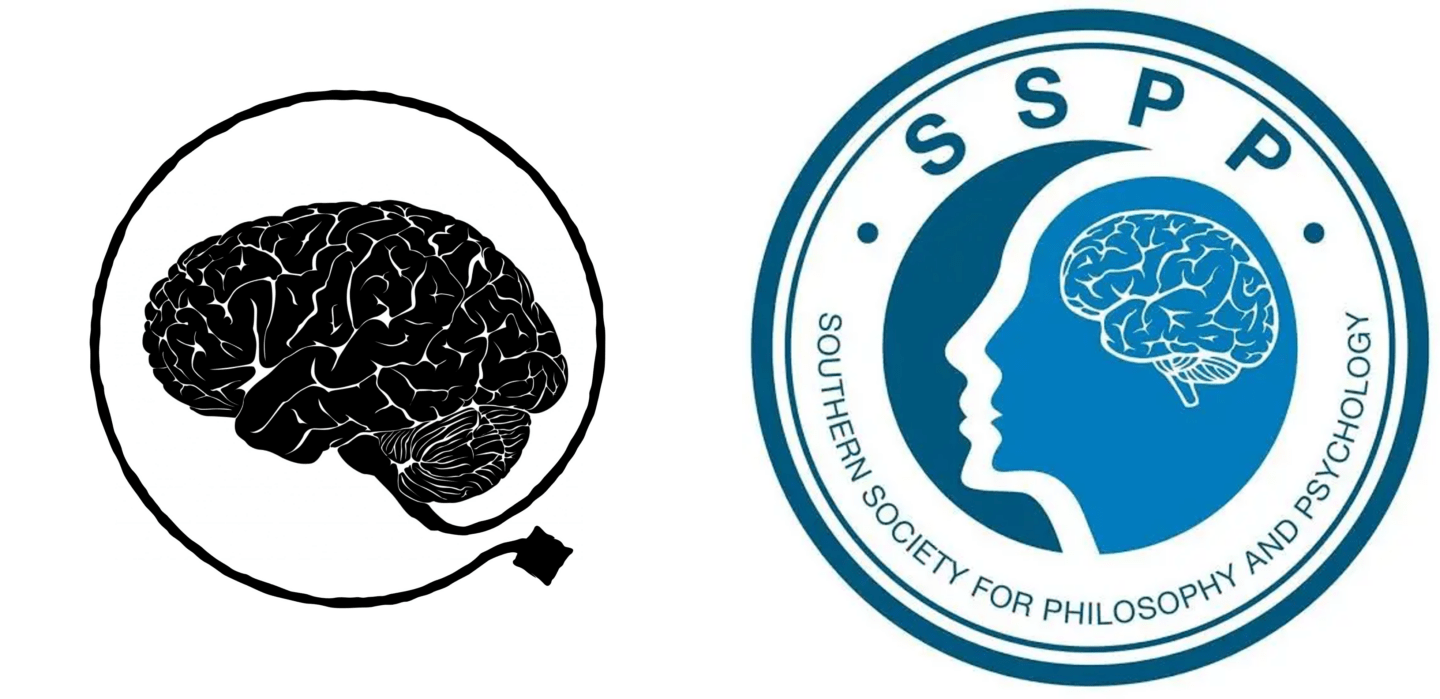By Sarah Robins, Purdue University
Thanks to the Brains Blog for featuring some of the great work from the latest SSPP meeting this week. There are several ‘phil & psych societies’, so it feels worth kicking off the week with a note about what distinguishes the SSPP.
The SSPP is, so far as I know, the oldest/longest running of these organizations. The SSPP began in 1904 and has met nearly every year since (with a few pauses for wars and pandemics). Thanks to the organization’s historians, we know a lot about past meetings and organizational activities. James L. Pate, who just stepped down from the position, has been especially helpful in compiling and digitizing past programs and organizational documents.
The SSPP boasts William James as a member, and John Watson as a past President. Take a look at the 1908 meeting, held at George Washington University. It began with a reception at the White House, with President (Teddy) Roosevelt. While it’s hard to imagine a contemporary meeting starting in the same way, talks on the psychic effects of anesthetics and the pictorial representation of distance would easily be at home on recent programs.
The composition of the SSPP—in terms of relative proportions of philosophers and psychologists, areas of research focus, and meeting structure—has changed several times over in its 121 years. For awhile now, the meeting has operated as something of two conferences in parallel. Psychology and philosophy each have their own program chairs, who organize distinct keynote speakers and symposia and referee submissions through distinct channels. There is still crossover: the Presidency alternates discipline year-to-year, there are joint symposia like the now annual one organized by John Bickle’s Deep South Philosophy & Neuroscience, and philosophers and psychologists who pop up on the ‘other side’ of the program. The model isn’t without its difficulties, but it’s a helpful one to have amongst the set available. The SSPP allows for a program that is bigger and broader, and an interdisciplinary community that is more fluid.
Less formally, I would say that – now, at least for philosophers – what the SSPP does especially well is provide a fun and supportive conference environment, with an informal but entrenched expectation of interaction between faculty and students and more emphasis on collaboration than competition. The vibes are ‘work hard, play hard’ – attendees stay out and up late, but they also fill the seats for 8:30 sessions. This environment is the product of several factors. Timing is one of them: meetings are generally in the southern US, in early spring when it’s still winter for most people traveling. The change in temperature makes it feel festive, even as intense spring storms sometimes add trauma bonds and travel delays. Venue also matters: SSPP meetings are generally held at boutique historical hotels, with grand ballrooms and bespoke bars. It’s more inviting to gather in these spaces than the University unions and generic conference rooms we’re all otherwise accustomed to. Mostly, though, the SSPP owes its environment to its people. All conferences have their regulars: people who like the scene and come back as often as they can, even if they aren’t on the program. SSPP regulars are those who have experienced this energetic and collaborative environment and decided it’s the way they want to do philosophy.
The SSPP held its 116th meeting April 3-5, 2025 at the Battle House Hotel in Mobile, Alabama. The philosophy chairs for this year’s program were Alessandra Buccella (University at Albany, SUNY) and Mason Westfall (Johns Hopkins).
Alessandra and Mason put together a broad and engaging program. The keynotes were given by Dan Kelly (Purdue) and Eric Mandlebaum (CUNY), challenging attempts at norm engineering and assumptions of cognitive simplicity, respectively. These talks highlighted the central role that moral psychology and philosophy of cognitive science have played in the SSPP for awhile now. There were also two Author Meets Critics sessions: on Mazviita Chirimuuta’s The Brain Abstracted and Şerife Tekin’s Reclaiming the Self in Psychiatry. These books, and authors, nicely illustrate two recent research trends at SSPP: philosophy of neuroscience and philosophy of psychiatry. The invited program was rounded out by invited sessions on technology & cognition, consciousness, and the format of mental representation. This invited program was complemented by a rich array of submitted papers and symposia.
This week, in honor of SSPPs focus on mentorship and furthering the work of junior scholars, we will feature posts on the best papers by graduate students at this year’s meeting. We have excellent posts from Selina Guter (MIT), Juan Murillo Vargas (MIT), Akshan deAlwis (Washington University), and Rodrigo Garro Rivera (USC).


I think you meant “Eric Mandelbaum” (typo)